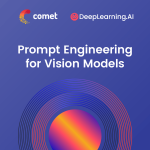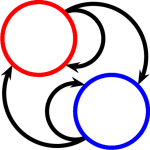This hands-on course guides learners through the complete lifecycle of building a movie recommendation system using Python. Beginning with a conceptual overview of recommendation engines and collaborative filtering techniques, learners will identify real-world applications and articulate how these systems drive personalization across platforms. The course progresses through … [Read more...] about Recommendation Engine – Basics
Algorithms
Prompt Engineering for Vision Models
Prompt engineering is used not only in text models but also in vision models. Depending on the vision model, they may use text prompts, but can also work with pixel coordinates, bounding boxes, or segmentation masks. In this course, you’ll learn to prompt different vision models like Meta’s Segment Anything Model (SAM), a universal image segmentation model, OWL-ViT, a … [Read more...] about Prompt Engineering for Vision Models
Python Programming for Quantum Computing
Updated in May 2025. This course now features Coursera Coach! A smarter way to learn with interactive, real-time conversations that help you test your knowledge, challenge assumptions, and deepen your understanding as you progress through the course. This course is designed to provide a solid foundation in Python programming, tailored for individuals interested in quantum … [Read more...] about Python Programming for Quantum Computing
Practical Quantum Computing with IBM Qiskit for Beginners
Updated in May 2025. This course now features Coursera Coach! A smarter way to learn with interactive, real-time conversations that help you test your knowledge, challenge assumptions, and deepen your understanding as you progress through the course. This course introduces you to quantum computing, focusing on IBM's Qiskit framework. You'll start with the basics of quantum … [Read more...] about Practical Quantum Computing with IBM Qiskit for Beginners
Introduction to Modeling for Formal Verification
This course introduces the basic concepts of functional verification and model checking, highlighting their importance in modern system designs. It explains different modeling formalisms for representing the behavior of hardware and software, which are either suitable for automated analysis or can represent data-dependent controls that are common in computing system designs. … [Read more...] about Introduction to Modeling for Formal Verification






